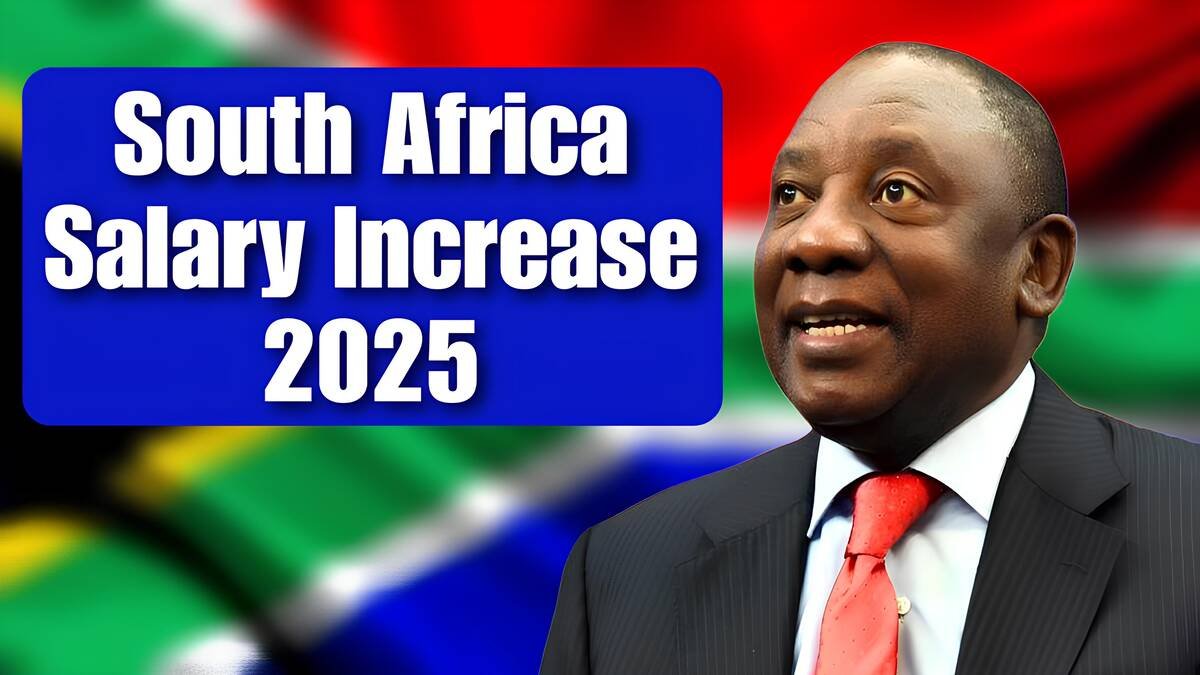The year 2025 is significant for South African workers regarding salary increase implementation by business across almost all industries for the purpose of fighting inflation and improving their living standards. These are wage adjustments that promise great effects to employees, the wider economy, and the fiscal policies of the country.
Why The Increase?
This because salary increases are being instituted as an effect of ever-present economic hardships, inflationary, and high living cost rates. The South African Reserve Bank predicts that the inflation rate will be 4.8% for 2025, which is the impetus as to why companies are now contemplating such measures that are within the purchasing power of the workforce. More so, unions in sectors like mining, manufacturing, and public services have leverage pressure on employers to clear conditions for their respective industries’ fair compensation.
Impact On Workers
- Better Standards Of Living : With better salaries, workers can be able to afford better necessities like housing, education, and health care. This added boost comes as many households are still recovering from the economic pitfalls incurred as a result of the COVID-19 pandemic and serves to help families trying to make ends meet.
- Employee Morale Boost : A well-paid employee pool often translates to a productive and satisfied workforce. Any company that invests in taking care of their employees through good remuneration has a motivated and loyal workforce.
- Increased Possibility For Wage Compression : Though amount as compensation is something that is much beneficial to many, higher salaries also tend to make the phenomenon of wage compression, whereby the gap between entry-level workers and employees already very senior in the organization becomes thin, thereby bringing disloyalty among higher-tier staff.
Economic Implications
- Upsurge In Consumer Spending : Worker disposable income is likely to witness an upsurge which in turn pushes consumer spending levels to great heights. It will thus drive the economy, becoming a positive factor in the productivity of retail, real estate, and leisure.
- Inflating Pressures : Even as increased wages counteract the deflationary effects that household have to endure, they lead to added pressure contributing to inflation. The employer could pass on the increased costs of higher salaries onto consumers in the form of increased pricing for goods and services.
- Increased Tax Collection : Higher salaries will mean that the government can create more income tax revenues that will be utilized to provide for various government-funded public services and infrastructure improvements.
Challenges For Businesses
Though salary increases are essential, they can be quite a nightmare to businesses, particularly small and medium-sized enterprises (SMEs), since they tend to struggle with profitability and wage hikes. Moreover, it happens that those employers will try to avoid letting operational efficiency be hampered by these wage increases, much more than their effect on internal wage differentials there.
What’s Next?
The effects of salary increases will unfold in one year’s time, and stakeholders will be closely watching how the pendulum swings between employee interests and economic sustainability. They need to enact policies that will bring about progressive wage adjustments while achieving macroeconomic stability through an alliance between the three institutions.
Also Read: SASSA SRD Grant Changes and Updates in 2025: What You Need to Know
